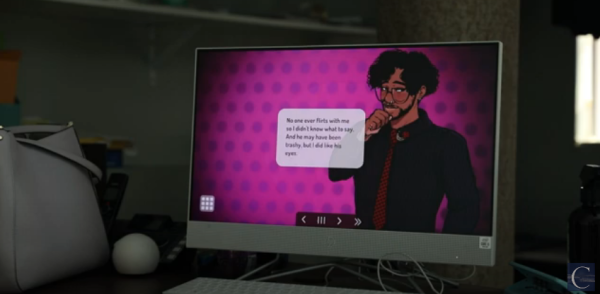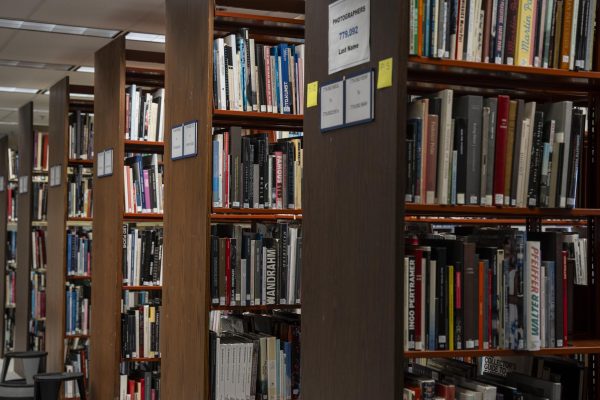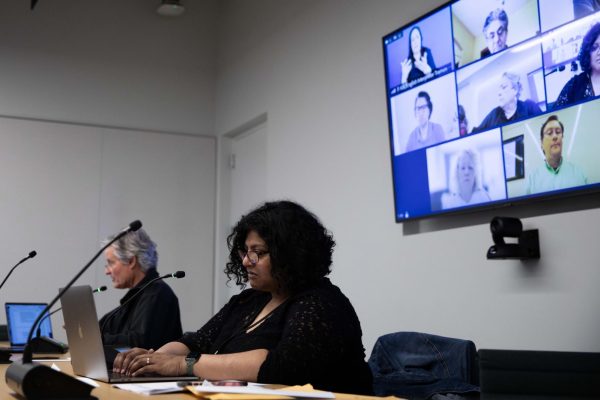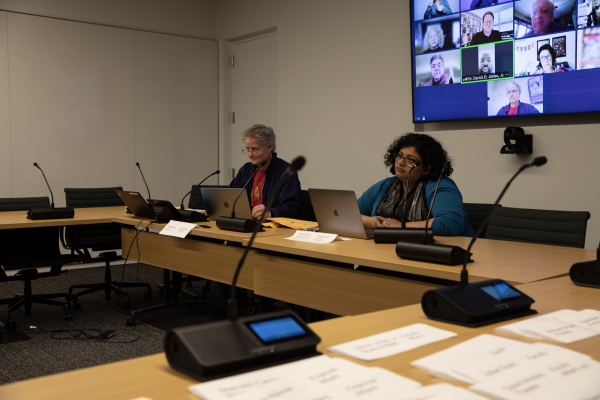While elections roll on, immigrants can only watch and wait
November 16, 1998
Millions of Americans stayed home Tuesday, Nov. 3rd and decided not to vote for whatever reason they had, while dozens of immigrants marched outside a voting precinct because they wanted to vote and couldn’t. The Illinois Coalition for Immigrant and Refugee Rights (ICIRR) held a candlelight vigil outside Harry Truman College to show people that there are many immigrants that are waiting for their citizenship applications to be processed.
In a recent survey produced by the ICIRR of people awaiting citizenship, almost 90% said they want to be a citizen so they can vote. “They work, pay taxes and obey the law. Voting will give them a more powerful role in determining how our government spends their taxes and shapes the laws that affect them,” said Fred Tsao, a ICIRR immigration and citizenship coordinator.
There are currently over two million applications on backlog nationwide at the Immigration and Naturalization Service (INS) and 93,000+ at the Chicago INS. The average waiting period to become a citizen is 18 to 24 months. The ICIRR recently released a report on how the citizenship process is failing and cited that there are many problems in the way the process moves.
The process involves many steps that must be paid for in advance. First there is a $95 fee for the application. Jorge Vasquez, who immigrated from El Salvador, said, “It cost me $225 to become a citizen and I have been waiting for two and a half years, and I still cannot vote.” There are many people who can’t come up with the money. They come to this country expecting a better life and they are stuck in a bureaucratic system, although many are happy just to be here.
The next step is getting fingerprints taken so the FBI can do a criminal background check. The problem is that an FBI background check is only valid for 15 months. With an average waiting time of 18 months this is creating a problem for many. According to the ICIRR there was one woman who came from Russia and applied for citizenship in March of 1995. She passed her interview and was waiting for her letter to come to tell her when to go to the oath ceremony. Shortly after, she got a letter stating that her fingerprints had expired and needed to have another set taken. The second set wasn’t any more helpful and she received a letter that said her prints were “unclassifiable.” The most recent set of prints that she had taken was September 1997, and there has been no word on her status. The wait extended some 37 months.
The most feared part of the application process is not the wait, but the exam. An applicant must take an English test and a 100 question test on American history. Katan Petuyou, who took the test, said that you have to answer 60 questions correctly on the test to pass, questions like, “Who wrote the National Anthem?” Many Columbia students I spoke with couldn’t correctly answer that question.
If the applicant passes the criminal background check, the English and history tests and the interview, they will be mailed a letter telling them to go to a ceremony to be sworn in. Most people wait patiently; after the pains of leaving your country and family behind, this is just another step in their goal to become an American.
One of the major problems is the lack of funding. Recently Congress passed a special appropriation of $171 million dollars to help with the backlog. The goal of this money is to reduce the wait for citizenship and to correct the errors that come from handling the millions of applications that come through the INS.
But despite all the negatives that come with applying for citizenship, those have come this far and still believe that their life will be better as an American. With all of the scandal in Washington these days many immigrants look at it as nothing compared to what many leaders in their countries have done. They are optimistic about the future and even though they must go through a long and tedious process, they want to vote.








